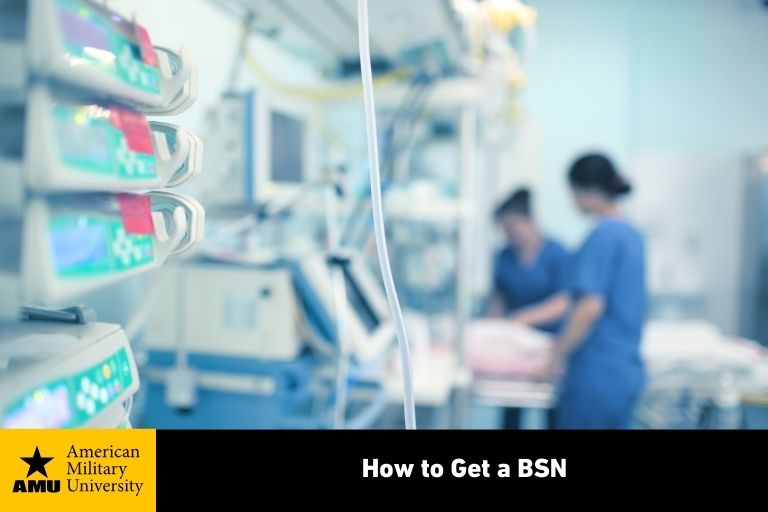10/20/2025

Starting a nursing education program begins with choosing the path that best fits your background and goals. A Bachelor of Science in Nursing (BSN) is one option available to students preparing for nursing licensure as well as registered nurses seeking additional academic study. BSN programs combine general education courses, science prerequisites, and nursing coursework with supervised clinical training.
With growing attention to advanced credentials in nursing, BSN degree programs place emphasis on areas such as nursing theory, public health, leadership concepts, and evidence-based practice. This combination of academic and clinical training provides students with an introduction to nursing practice in varied contexts.
Earning a BSN involves meeting prerequisites, selecting the right program type, completing clinical training, and preparing for licensure—while also considering how program features such as flexibility and support may fit individual needs.
BSN Requirements and Prerequisites
Before applying to a BSN program, prospective nursing students need to meet core academic and eligibility requirements. These may vary slightly by school or program type, but generally include:
- A high school diploma or GED (for first-time college students)
- For RN to BSN programs, an active, unencumbered RN license is required
- Completion of prerequisite courses such as anatomy, physiology, microbiology, nutrition, and general education classes in English and math
- Proof of prior college-level coursework (especially for accelerated or transfer-friendly programs)
Many RN to BSN programs are tailored for licensed RNs with an associate degree or nursing diploma who want to continue their professional education. These programs often provide online formats with flexible scheduling, though specific deadlines and requirements still apply.
BSN Pathways — Traditional, RN to BSN, and Accelerated Options
Students can pursue a BSN through several different pathways, depending on their prior education, licensure status, and long-term goals. The most common options include traditional BSN programs, RN to BSN programs, and accelerated BSN programs, each offering a distinct structure to meet different student needs.
Traditional BSN Degree Program
This is a four-year baccalaureate degree program designed for students without prior nursing education. It includes a mix of general education, science, nursing theory, and clinical practice experiences.
RN to BSN Degree Program
The RN to BSN pathway is designed for licensed RNs who want to build on their existing knowledge and experience. These programs may focus on areas such as nursing leadership, evidence-based practice, and community health, depending on curriculum design.
Accelerated BSN Programs
Ideal for students with a bachelor’s degree in another field, these programs offer a fast-paced, intensive path into nursing—often completed in 12–18 months. These programs are rigorous and condensed but offer a viable option for individuals changing careers
BSN Application and Admission Requirements
Most BSN programs have a structured admission process, which may include:
- Official academic transcripts
- Minimum GPA requirements (especially in science or general education courses)
- RN license verification (for RN to BSN students)
- Background check and immunization documentation (especially for clinical placements)
- Letters of recommendation or personal statements
Some schools also require standardized test scores or interviews, depending on the competitiveness of the program. Many BSN programs offer admission processes designed to be accessible and supportive for working professionals and students with diverse backgrounds.
Understanding the BSN Curriculum
A BSN program blends clinical skills, nursing research, and health policy knowledge with a strong academic foundation in the science of nursing. The curriculum often includes:
- Core nursing courses in public health, community nursing, and nursing leadership
- Topics such as nursing theory, nursing process, health promotion, and mental health care
- Clinical rotations that build practical experience across different healthcare settings
- Evidence-based practice, cultural competence, and professional ethics
Many BSN programs also emphasize critical thinking, clinical judgment, and lifelong learning—skills that support growth into more specialized or advanced roles.
Clinical Practice and Hands-On Learning in BSN Programs
One of the most critical parts of a BSN education is clinical training, which may take place through placements, simulation labs, or community-based projects, depending on program structure and clinical site availability.
Clinical hours often cover specialties such as maternal health, pediatrics, mental health, and geriatrics. Students may also have opportunities to apply the nursing process in action—including patient assessments, care planning, and collaboration with interprofessional teams—depending on clinical placement availability.
For RN to BSN programs, clinical requirements may be fulfilled through leadership projects or community health initiatives rather than hospital-based rotations.
Preparing for the NCLEX-RN and Nursing Licensure
After earning a BSN, students must pass the NCLEX-RN, the national licensing exam for registered nurses. BSN programs build the knowledge, clinical judgment, and decision-making skills necessary to take the exam with confidence.
For students already licensed as RNs pursuing an RN to BSN degree, the NCLEX-RN has already been completed, but the BSN coursework still deepens readiness for more advanced roles.
Graduate Nursing Education After a BSN Degree
Some BSN graduates choose to pursue further study in nursing through graduate-level programs. Options include a Master of Science in Nursing (MSN) or doctoral programs such as the Doctor of Nursing Practice (DNP) or PhD in Nursing. These programs emphasize areas such as advanced clinical practice, teaching, research, or healthcare administration.
BSN-level coursework may also provide a foundation for study in specialized areas of nursing, such as pediatrics, oncology, informatics, cardiac care, or emergency nursing.
Interested in advancing further? Explore "Can You Go Straight From BSN to MSN?" to learn about the next step in nursing education.
Planning Your BSN Degree Path
A BSN program combines coursework in science and nursing with supervised clinical experiences. While program formats vary, most include traditional, RN to BSN, and accelerated options.
Students considering a BSN degree may evaluate factors such as program length, prerequisites, curriculum, and delivery format. A BSN includes academic study in nursing theory, patient care, and healthcare systems, paired with clinical training intended to support preparation for professional nursing roles.